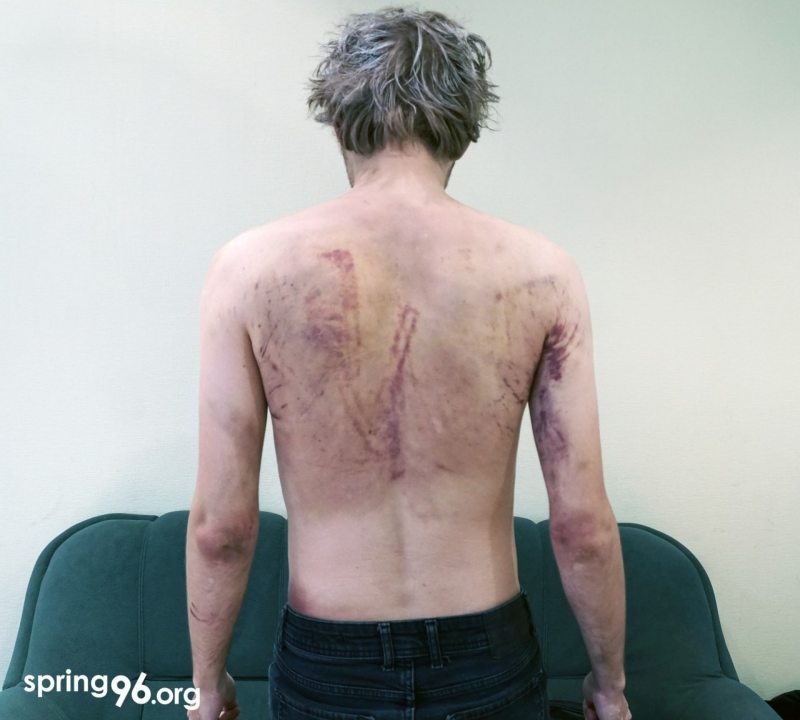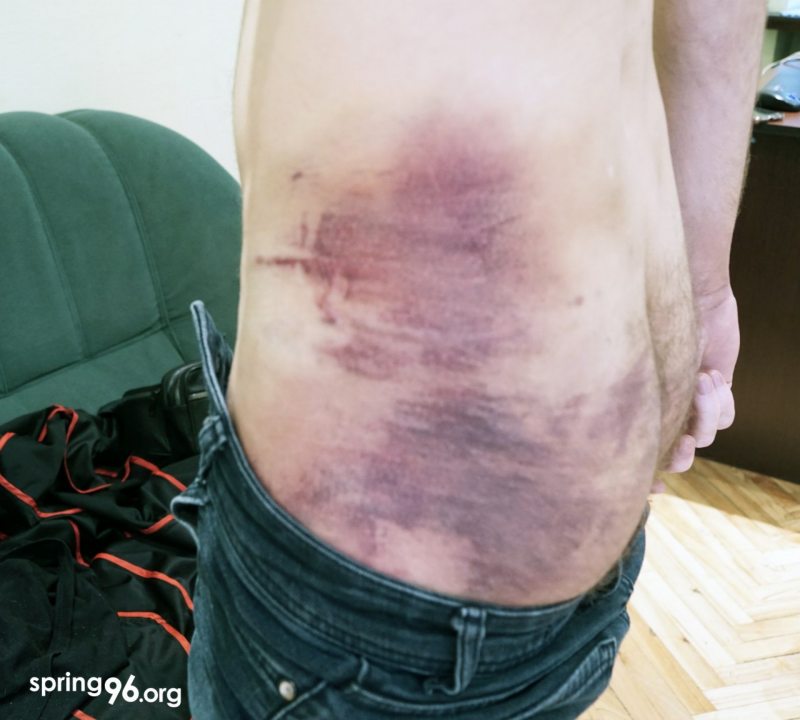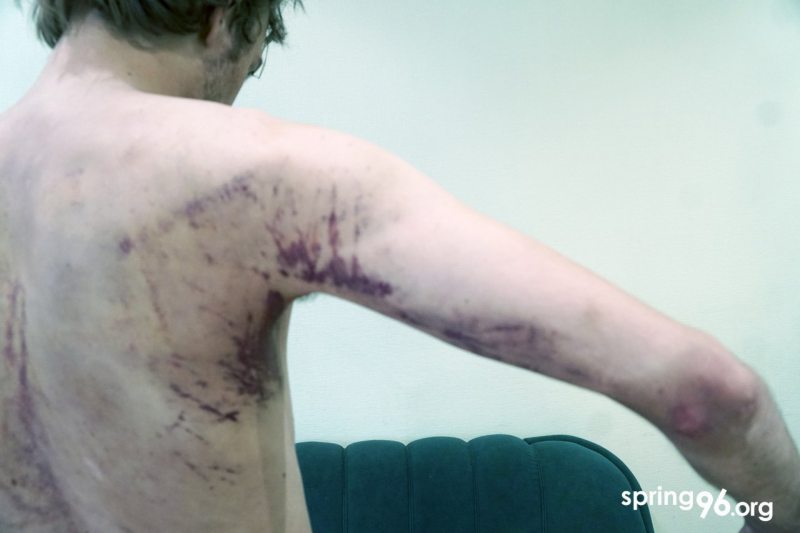"White paint was poured on my head. It was like a sign to beat me harder." Survivor stories
The Human Rights Center "Viasna” and the World Organization Against Torture (OMCT) launched a campaign to document cases of torture, cruel, inhuman and degrading treatment of protesters on August 9-13. Some testimonies of people who survived torture and violence will be published on our website as evidence of crimes committed by security forces.
Stas Dziadou was detained on August 11 in Minsk next to the Peoples' Friendship Park. The police poured white paint on his head, thus "marking" him. Stas told "Viasna" about what happened and his experience.
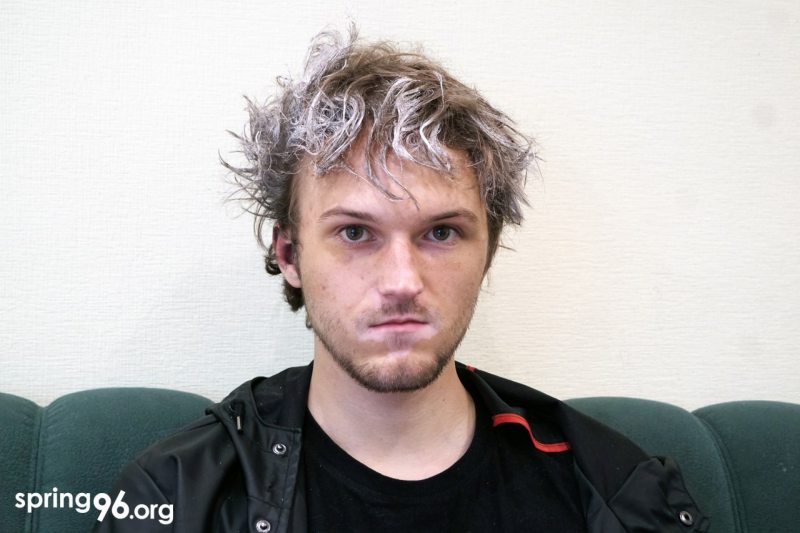
- Stas Dziadou. The victim's hair is stained with the paint poured on his head by law enforcement officers
Stas and his friend were walking along Arlouskaya Street when they were overtaken by two vans with tinted windows. A law enforcement officer wearing a green uniform came out. The couple asked him how dangerous it was to go forward.
"He told us to go back. We were planning to go back, but several other policemen came out of the vans, one of them had a rifle. They came up to us and started demanding that we unlock the phones and show them the videos and photos we had on the devices. They found a video from the previous day's protest on my friend's phone. They put us in a van. There they saw a white ribbon on my hand. I think that was the moment when I got the first hit.
When the van was passing by the Riga trade center, white paint was thrown into it which made the officers very angry. Stas says that the one with a rifle asked others to open the window so he could shoot.”
Stas was ordered to lay down on the floor, his hands were cable-tied. He spent about 20 minutes in this position, every now and then somebody stomped on his body. The police noticed a white-red-white belt and cut it. Then Stas was moved to a bigger police van. He doesn't know what happened to his friend.
"There was already one person lying in the police van. I was put next to him, on the way they beat us with batons. Then they took me out of there, took a bottle with white paint and poured it over my head. They took me by the hair and wiped the paint on the van with my head. Then they sent me to another police van. Many people were inside it - they lay flat on top of each other. I was lying on the bottom.
I do not know where it was better to lie, on top or at the bottom. Because the top was beaten with batons and the bottom just couldn't breathe properly.
I do not know if the paint was poured on someone else. But I was told about some partner with whom I allegedly threw paint. However, I had nothing to do with the paint. Apparently, I was confused with somebody else."
Stas recollects that there were at least two other transfers between the gas stations. People were beaten at these moments. OMON officers recognized Stas by the white paint on his hair - it was like a mark that that person should be treated: it is necessary to treat this person with special brutality.
Stas had to crawl from one van to another and was beaten on the way. All the detained were brought to the detention center in Akrescin Street and took away the phones without filing any necessary reports.
"In the detention center, we were all kneeled next to the fence, head to the ground. That's where they beat us the most. They often paid attention to the fact that I was painted - it was an extra reason to beat me. They mostly beat me on the legs and back, and a lot on the buttocks. Mainly with batons, sometimes with legs or fists."
Stas says that they filed the administrative offense report in the detention center. Several people were brought into the corridor and asked a couple of questions: full name, date of birth, and place and time when they had been detained.
“I saw the head of the report, but the rest was left empty. I was not asked to sign the protocol. I do not know where this piece of paper ended. They sent me back to the cell. It was designed for 4 people, but there were 28 of us.
At night one could hear screams from the street. On the night of August 12-13, we heard people being forced to sing the national anthem of the Republic of Belarus. We were not taken out of the cell.”
Stas was released on August 14 at about 6 am. All the detained had to sign a warning (promising that would not participate in an unauthorized mass event). We were not allowed to take away our personal belongings.
More stories of people who survived police violence and torture:
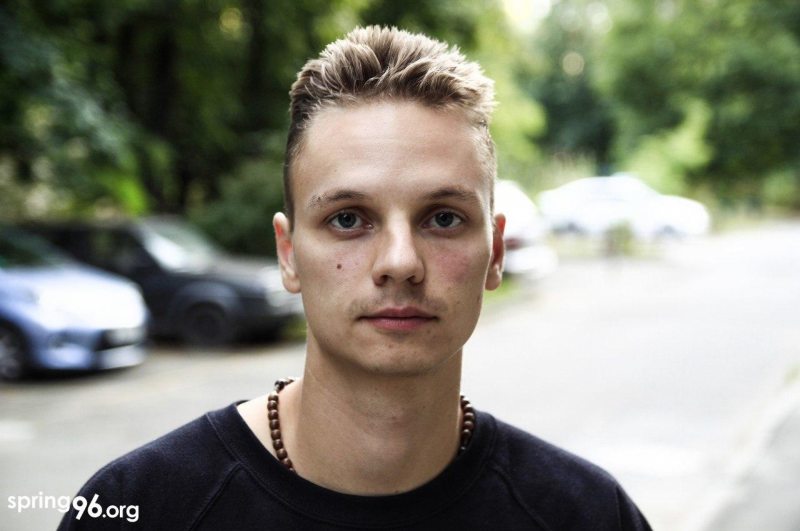
"One of them beats you and the other aims at you with a machine gun." Survivor stories
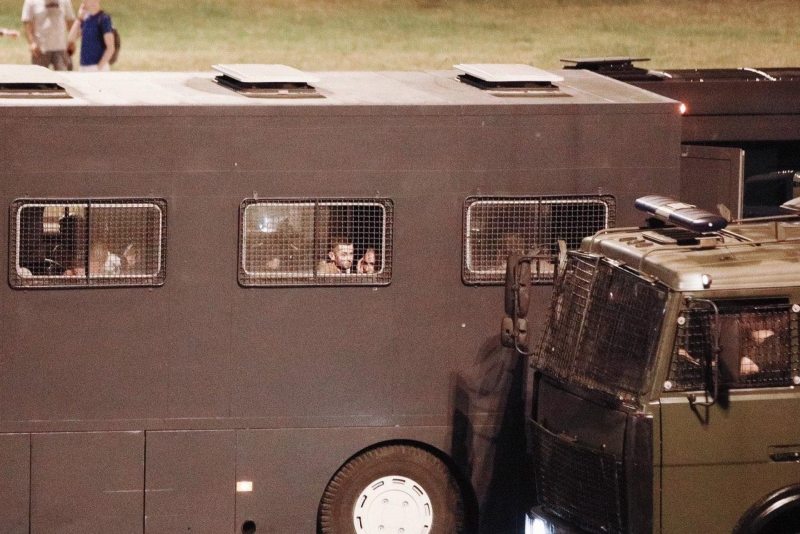
"They took away my bra with a breast prosthesis." Survivor stories
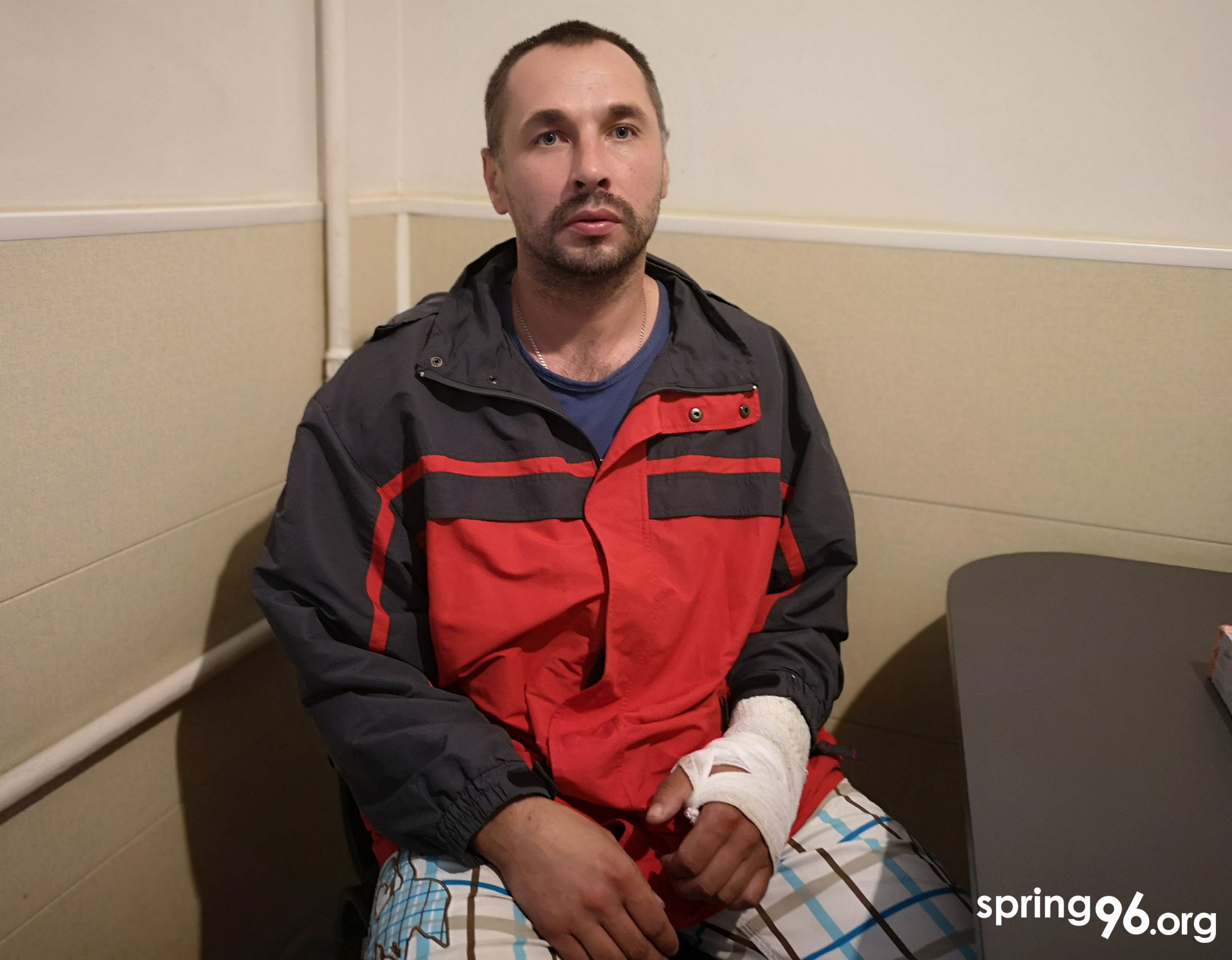
"Road police officers broke my arm during detention." Survivor stories
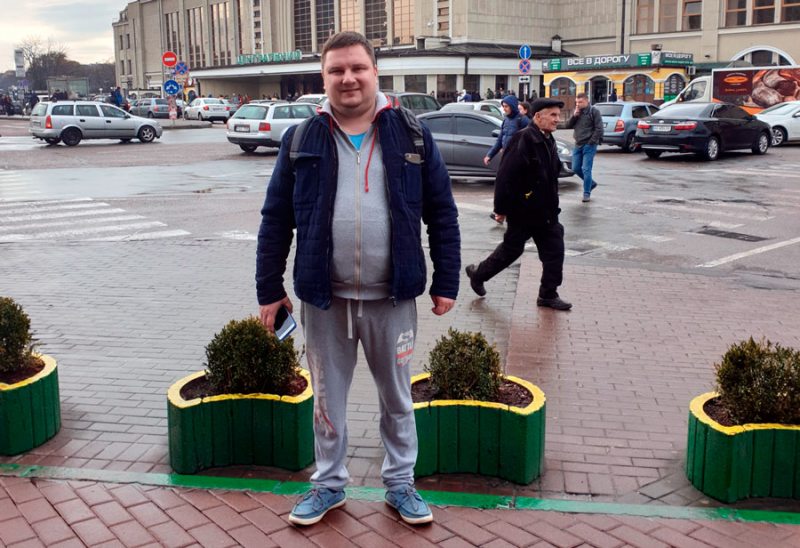
"I was lucky to be a journalist and to have my kidneys thrashed previously." Survivor stories
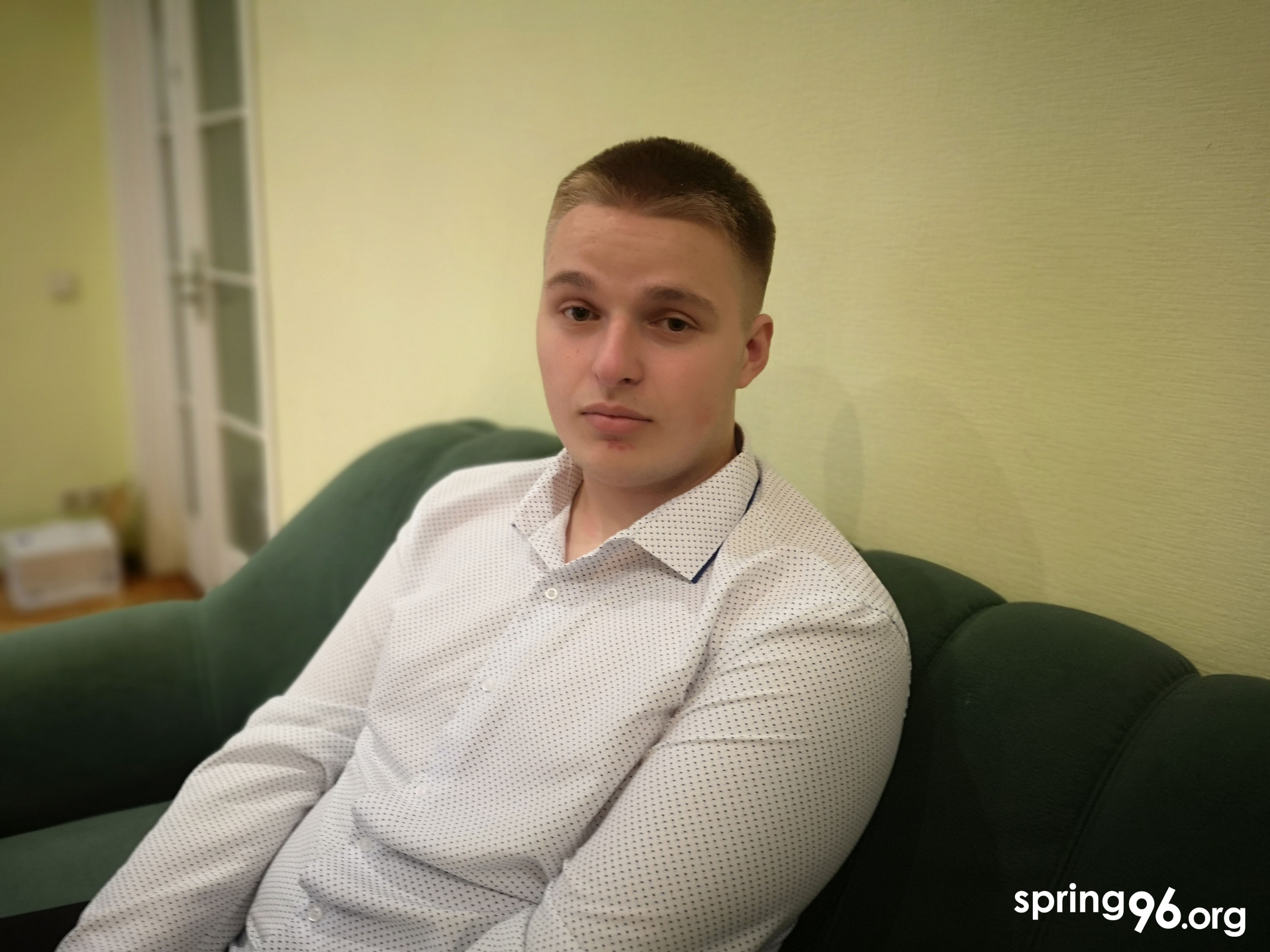
“We will shoot you and you will never be found.” Survivor stories
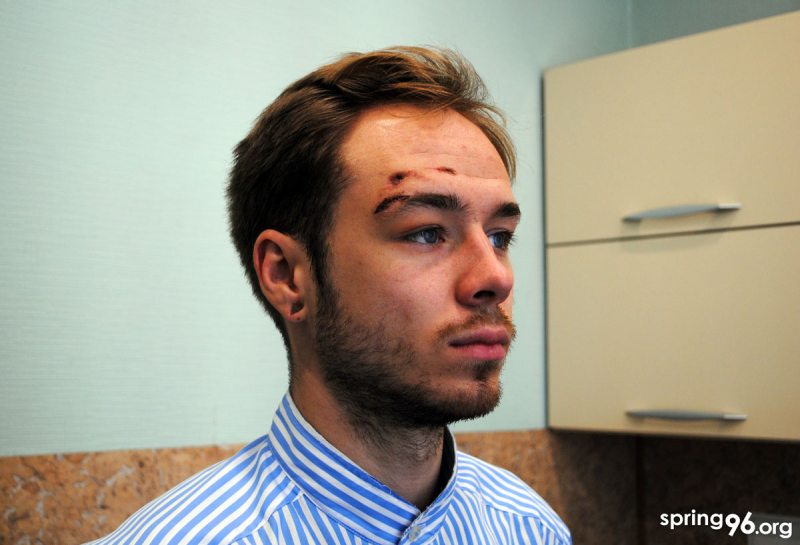
“We were trampled in the police bus.” Survivor stories
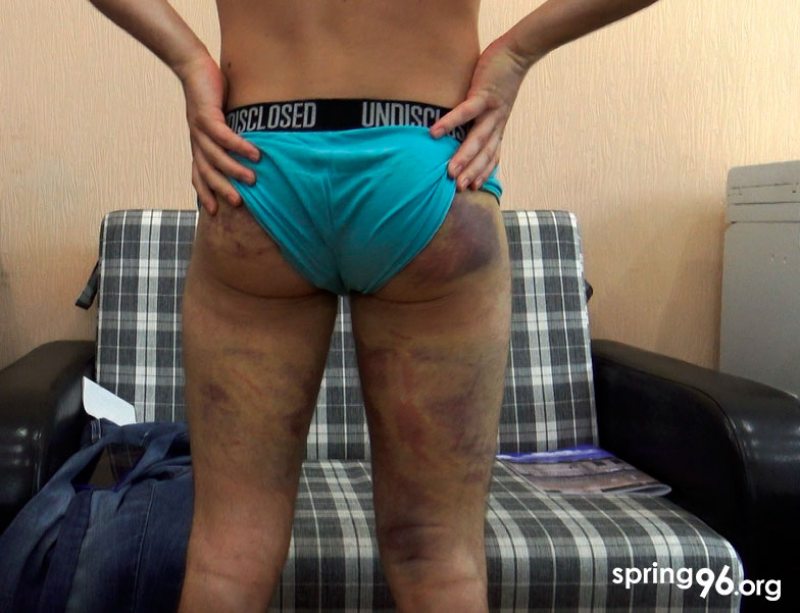
“Now we’ll show you how to s..t your pants." Survivor stories
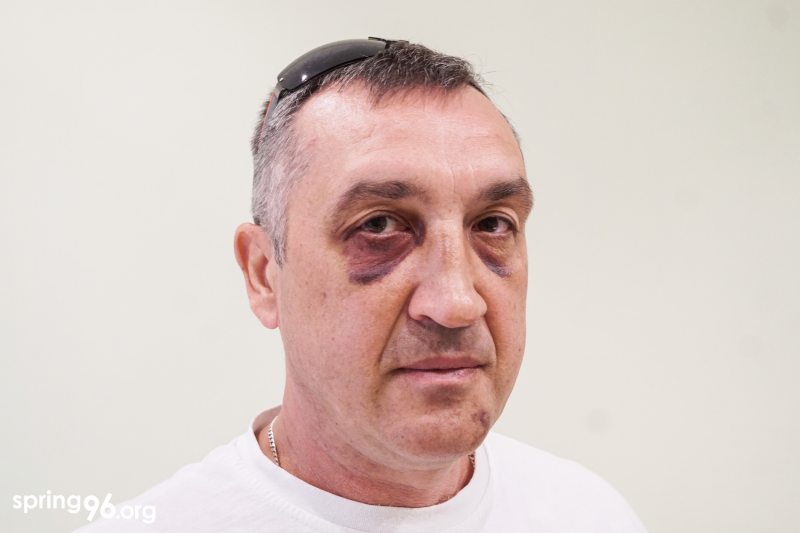
“So you are for Tsikhanouskaya?” Survivor stories
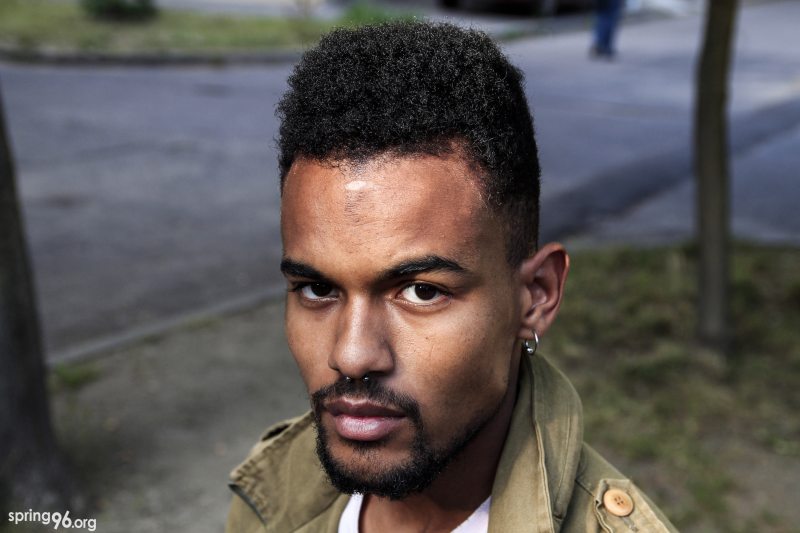
"Officers abused me all the time because I’m black." Survivor stories
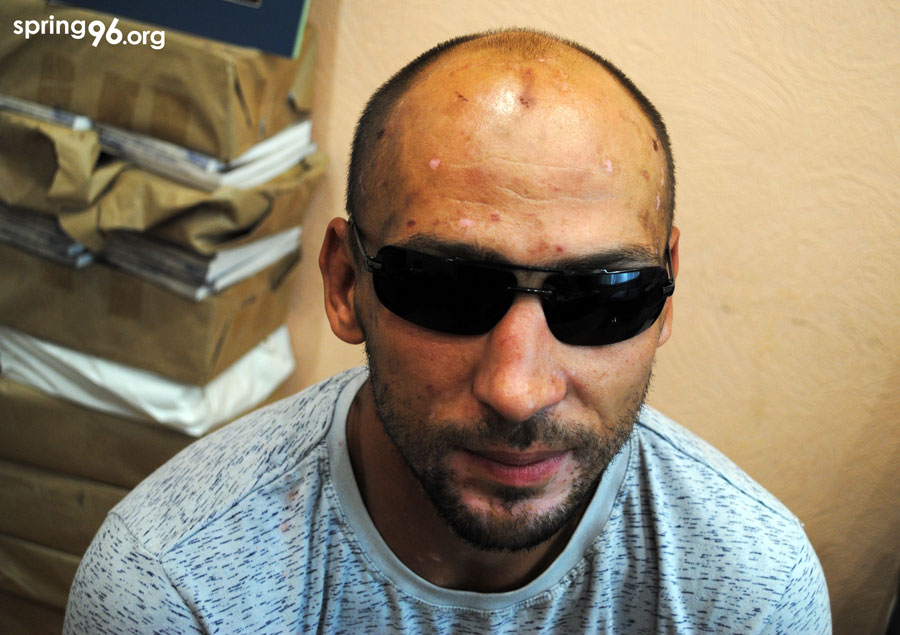
“They kicked me in the head with their police boots.” Survivor stories
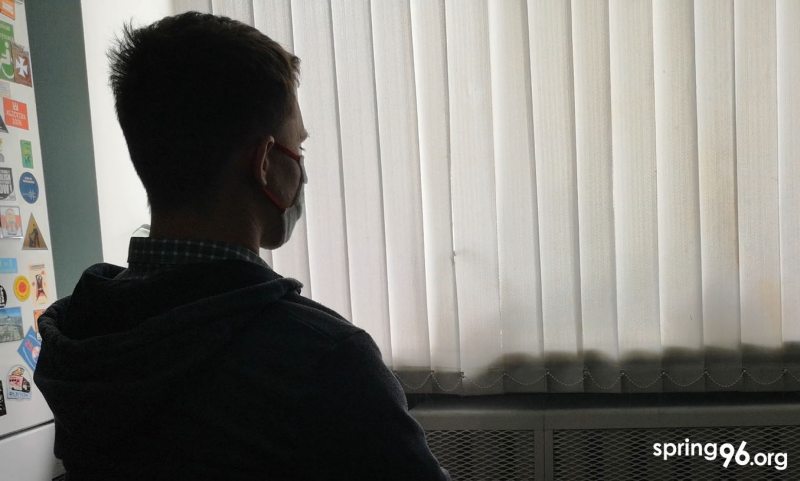
“People were screaming every night.” Survivor stories



